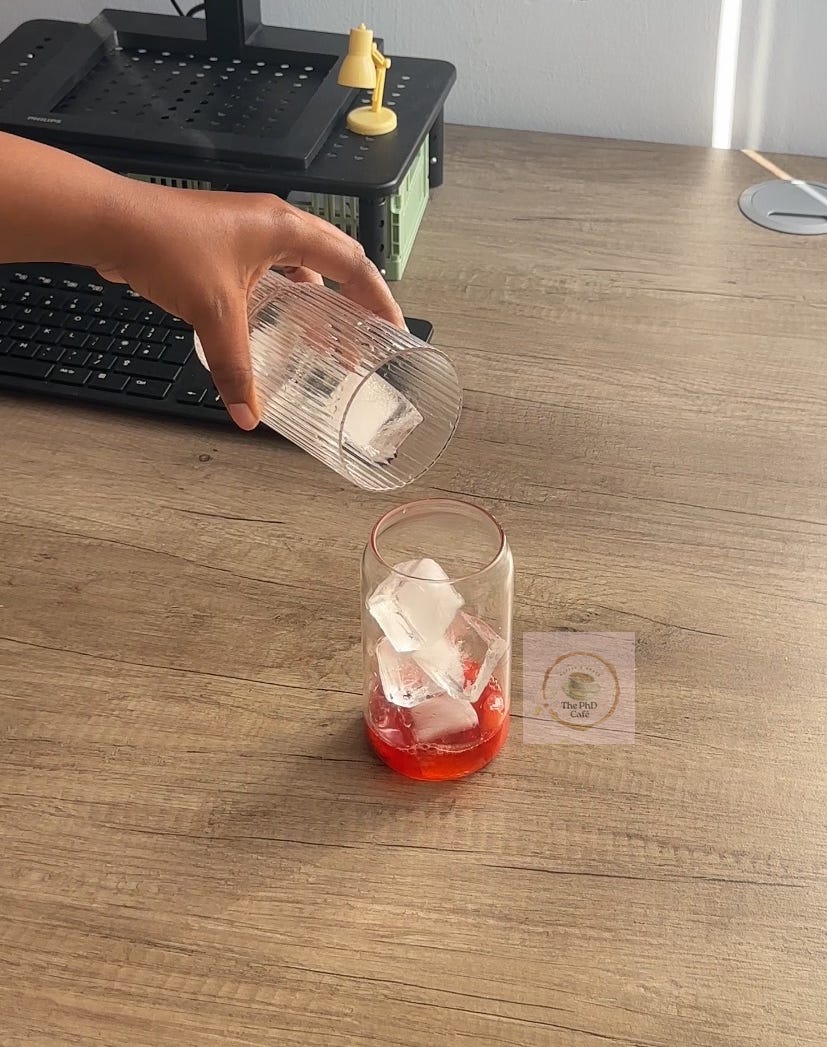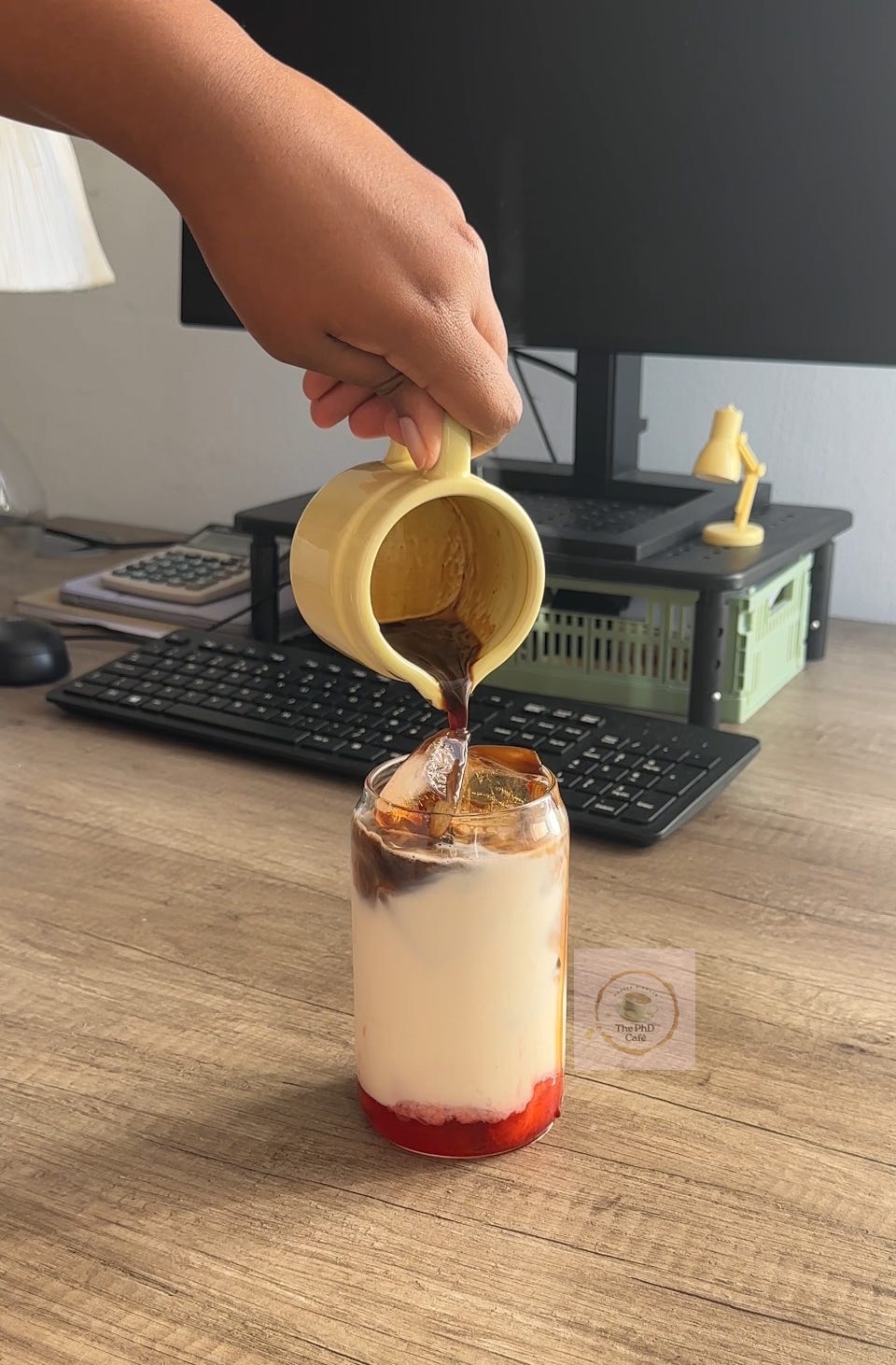Handling the PhD workload
Tips to help you maximise your PhD productivity
When you picture what working on your PhD would be like, the predominant image in your mind is likely that you’ll sit at your desk (or in your lab) with endless and boundless words or near complete works bellowing out of you.
While those days do exist, they are not the only moments that can signal a successful and productive day. Your PhD workflow and expectations should therefore reflect this.
When planning for your PhD work days, it is crucial to remember that frequent momentum, whether through small, medium or large steps are what will ultimately bring you to the successful completion of your degree. Here are a ideas to consider when you plan your PhD work days.
1.) ‘‘When am I most productive?’’
The PhD is known for being notoriously flexible, in that the typical PhD day is not marked by a definitive schedule common at other degree levels. Some researchers meet this flexibility by instilling the same structure outlined by a typical 9 - 5 job, finding much success through this reliable routine.
Some however may find such a schedule too restrictive, finding that they perhaps instead work better earlier in the morning with bouts of unproductivity as the evening draws close or vice versa.
Whichever category you fall under, accept which format brings you the most productivity and release the guilt that your day perhaps looks nothing like other researchers around you.
The structure that works best might also change as you progress through your degree, for example during your final year, you may find yourself adopting moe of a 9-5 approach, or as someone who disdains evening work you may find yourself sat at your desk at 7pm due to the prolonged sunlight of the merciful summer months.
If however, you haven’t quite found what works best for you yet, that is okay too, try out different formats and make a note of your productivity and attention span during each.
2.) Measuring success, time vs tasks
As with the above, there are a variety of ways doctoral student’s measure their success. Some feel accomplished by having a full day at the office, or a certain number of hours minimum, while others measure their success on a task basis.
In my earlier days of my PhD, I found myself disappointed when I couldn’t spend hours in the office, I would complete tasks early but felt unaccomplished because I wasn’t ‘‘clocking out’’ at an ‘‘appropriate time’’.
The greatest shift of my PhD journey was when I shifted my success metrics to a task by task basis. Having a set number of tasks I aimed to complete in a day, meant my day was measured by visible and trackable goals.
3.) Taking one bite at a time, set yourself clear goals
The PhD, much like a grand cake in front of you can only be accomplished one bite at a time, overfilling is neither enjoyable nor recommended.
Plan your PhD workload through manageable goals each work day rather than an abstract goal like - ‘‘Finish chapter 3 today’’. Which seems like something incredibly mammoth when phrased in that way, saying something instead like ‘‘Finish section on ‘researcher positionality’ in chapter 3’’. This goal does go towards finishing the bigger goal of completing chapter 3 but you are tackling it in a more tangible way. You could even break it down further ‘‘finish paragraph 4 in the ‘researcher positionality’ section of chapter 3’’.
Setting yourself clear, manageable and achievable goals counts positively towards your perception of yourself as a capable researcher. If you only ever set yourself huge goals, you will likely be disappointed in yourself when you find that these goals can only be accomplished through spreading them across days anyway. Instead, breaking each huge goal, into manageable bites makes it easier to tackle. It doesn’t make you any less of a researcher but instead accounts for the fact you are human and not a machine. Good work can take time.
4.) Identify your tools
As with finding the best time to work, you need to understand the best tools to work with.
Just because everyone and their cousins seem to be using a particular software doesn’t mean it’ll be the best for you.
You need to stay true to the methods that bring you the most ease and productivity at a personal level.
Better with a pen and paper to tease out your ideas?
Do that
Better having an excel sheet to track your literature review sources?
Do that
Better organised with a physical planner?
Do that
There is no linear way to conduct research, (ethics and researcher conduct etc aside of course)
But your day to day? The way you get organised and stay organised? this is personal.
There will always be some new piece of tech around marketed towards ease, you might also be flexible to trying it out but if it doesn’t work, there is no loss in sticking with what does.

5.) The learning curve
As great as it would be to come in as a new researcher and immediately know everything, be able to do everything and be seamless all at once, that is seldom the case without adequate training, coupled with intentional and consistent effort. You are learning, starting a new skill often at level zero, this is the time to give yourself grace as you train into this new role.
Does your University offer internal training sessions for research skills?
Attend them
Spotted a relevant external training session?
See if there is funding
Stuck on how to use a particular program?
Youtube it
As much as you are learning about your research topic, you are also learning how to carry out research itself. There is no need to beat yourself up over what you don’t know, especially when it is a natural part of starting something new, instead simply redirect that energy into getting better, through practical planning and patience.
Some Universities incorporate this training as a mandatory part of your research degree, for others that don’t, actively seek out these opportunities. Even where they are not incorporated into the degree, many Universities have a ‘Doctoral Academy’ (known by different names) that frequently host a number of sessions on these research skills.
Outside of these, find a book on qualitative research methods, quantitative research methods, how to conduct semi-structured interviews, using SPSS for analysis etc, start learning research skills and as early as you can.
There is absolutely no shame in not knowing these things, and this is a natural part of becoming a researcher. Having these skills will also make your goals as a researcher clearer, equipping you with what you need to navigate your degree and its many course related challenges.
If you found this post helpful then consider subscribing! It helps me keep going.
If there’s anything else you’d like to see me talk about in future posts, leave a comment below. See you in the next one friends.





